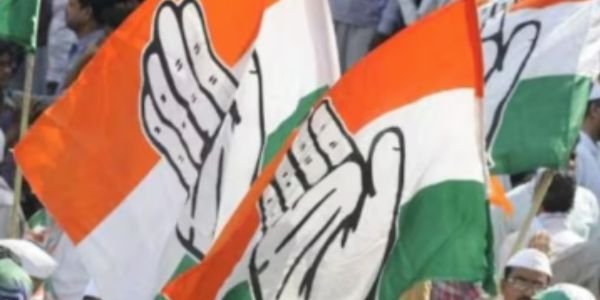Decoding the Congress Defeat in Madhya Pradesh Elections 2023: A Multifaceted Analysis
A State in Flux: Madhya Pradesh, often referred to as the heart of India, witnessed a political seismic shift in the 2023 elections as the Congress party faced an unexpected defeat. The state, known for its political volatility, became a battleground where intricate factors, both local and national, converged to shape the electoral outcome. This article delves into the reasons behind the Congress defeat in Madhya Pradesh, dissecting the complexities that contributed to the party’s unexpected setback.
The Congress in Madhya Pradesh – A Historical Perspective: To understand the 2023 defeat, it is imperative to look at the historical context of the Congress party in Madhya Pradesh. The state, known for oscillating between the BJP and the Congress in previous elections, had seen a significant victory for the Congress in the 2018 assembly polls. However, maintaining political momentum proved challenging for the party in the subsequent years. The leadership dynamics within the Congress, the implementation of policies, and the party’s ability to connect with the electorate played crucial roles in shaping its fortunes. The historical context laid the groundwork for the political drama that unfolded in 2023.
The Issue of Leadership: One of the primary factors contributing to the Congress defeat was the issue of leadership. The state witnessed a changing of the guard within the party, with infighting and internal dissent playing out in public view. The leadership transition from Kamal Nath to a new face led to a lack of continuity, creating a sense of instability among voters. The BJP effectively capitalized on the leadership vacuum within the Congress, portraying it as a party in disarray. The absence of a charismatic and unifying leader became a vulnerability that the BJP exploited, resonating with voters who sought stability and strong leadership.
Anti-Incumbency and Governance Challenges: While the Congress had secured a victory in the previous elections, it failed to capitalize on the goodwill generated. Anti-incumbency sentiments started to brew as the party grappled with governance challenges, including issues related to unemployment, agrarian distress, and economic stagnation. The promises made during the 2018 campaign seemed elusive, contributing to a growing sense of disillusionment among voters. The BJP strategically highlighted these governance lapses, painting the Congress government as ineffective and disconnected from the ground realities. The failure to address core issues eroded the confidence of the electorate, leading to a significant shift in support.
Socio-Economic Factors and Regional Disparities: Madhya Pradesh is a diverse state with distinct regional identities, and socioeconomic factors play a pivotal role in shaping electoral preferences. The Congress defeat can be attributed, in part, to the party’s inability to address regional disparities and cater to the diverse needs of the population. The BJP, through targeted campaigns, managed to tap into regional aspirations and grievances. The promise of inclusive development, tailored to specific regional requirements, resonated strongly with voters. The Congress, in contrast, struggled to convey a coherent regional strategy, leading to a loss of support in key constituencies.
National Dynamics and the Modi Wave: The 2023 elections in Madhya Pradesh were not fought in isolation; they were influenced by national dynamics, particularly the charismatic presence of Prime Minister Narendra Modi. The Modi wave, a phenomenon that had defined previous elections, once again played a pivotal role in shaping voter perceptions. The BJP strategically aligned its campaign with national issues, leveraging the popularity of Prime Minister Modi. The promise of a synchronized development agenda, resonating with the national narrative, overshadowed the Congress’s regional focus. The Modi wave became a force that the Congress struggled to counter effectively.
Communication Gap and Messaging: Effective communication is a cornerstone of political campaigns, and Congress faced challenges in conveying its message to the electorate. The party’s messaging lacked clarity and resonance, allowing the BJP to dictate the narrative. The failure to articulate a compelling vision for the future, coupled with a lack of counter-narrative against the BJP’s campaign, left voters with unanswered questions. The BJP, on the other hand, adeptly communicated its agenda, framing the election as a choice between stability and perceived chaos. The Congress, amid leadership transitions and internal discord, failed to present a unified and persuasive message that could sway voter sentiment.
Strategic Errors and Tactical Missteps: Political campaigns are intricate chess games, and tactical errors can prove costly. The Congress, in its bid to regain political ground, made strategic errors that contributed to its defeat. These errors ranged from candidate selection to the timing and nature of campaign promises. The BJP, under the guidance of seasoned political strategists, exploited these missteps, effectively highlighting the Congress’s vulnerabilities. Tactical misjudgments further eroded the Congress’s electoral standing, allowing the BJP to capitalize on every perceived weakness.
Voter Demographics and Shifting Alliances: Understanding voter demographics is essential in crafting a winning strategy. The Congress, however, failed to anticipate shifting alliances and demographic changes within the electorate. The BJP adeptly forged alliances with influential community leaders and organizations, expanding its support base. The Congress, meanwhile, grappled with internal strife and failed to proactively engage with key demographics. The changing socio-political landscape saw a gradual erosion of traditional Congress vote banks, further contributing to the party’s defeat.
Post-Election Analysis and Course Correction: In the aftermath of the defeat, the Congress engaged in a process of introspection. Party leaders analyzed the election results, sought feedback from grassroots workers, and evaluated the efficacy of their strategies. Recognizing the need for a course correction, the Congress initiated internal reforms aimed at addressing leadership issues, governance challenges, and communication gaps. The process of rejuvenation involved rebuilding trust among party workers, reconnecting with the electorate, and devising a comprehensive strategy for the future. The defeat in Madhya Pradesh became a catalyst for internal reforms, prompting the Congress to reassess its approach to regional and national politics.
The Road Ahead for Congress in Madhya Pradesh: As the Congress contemplates its future in Madhya Pradesh, the road ahead is fraught with challenges and opportunities. The party must reconcile with the changing political dynamics, foster internal unity, and articulate a compelling vision for governance. Rebuilding trust among the electorate, particularly in the wake of the defeat, will be crucial in re-establishing the Congress’s political relevance in the state. The role of leadership, effective communication, and a nuanced understanding of regional dynamics will play pivotal roles in the Congress’s revival strategy. Learning from the lessons of the defeat, the party has the potential to reinvent itself, connect with the aspirations of the people, and emerge as a formidable political force in future elections.
Lessons Learned and the Evolution of Indian Democracy: The Congress defeat in Madhya Pradesh in 2023 serves as a poignant chapter in the evolving narrative of Indian democracy. It underscores the importance of adaptability, strategic acumen, and the ability to connect with voters in the complex political landscape of a diverse state. As the Congress embarks on a journey of introspection and rejuvenation, the lessons learned from this defeat become invaluable. The dynamic interplay of local and national factors, leadership challenges, and the impact of the Modi wave collectively contribute to the multifaceted story of the Congress defeat in Madhya Pradesh. In the tapestry of Indian democracy, each electoral outcome, whether victory or defeat, adds a layer of complexity, shaping the ever-evolving narrative of the nation’s political journey.





Leave a Reply